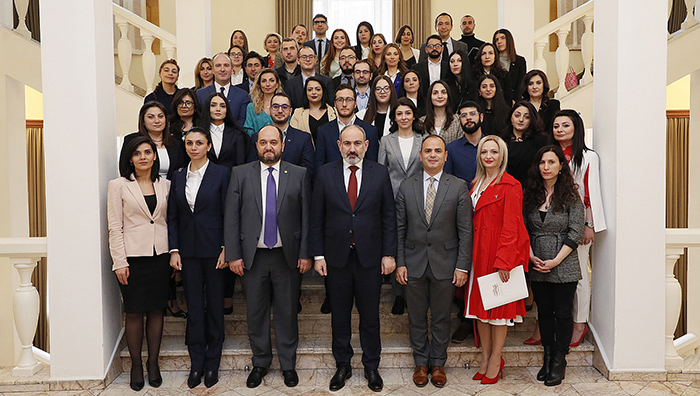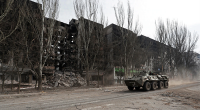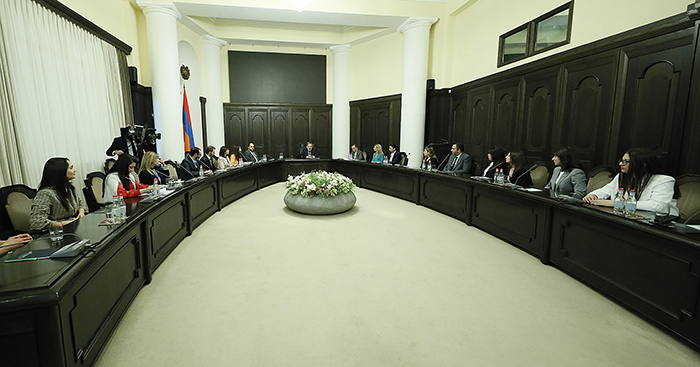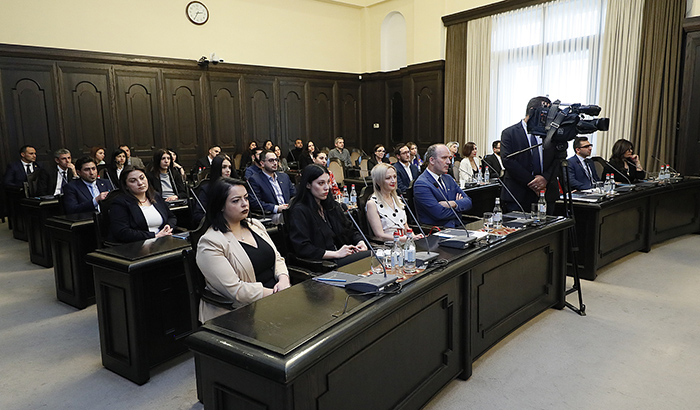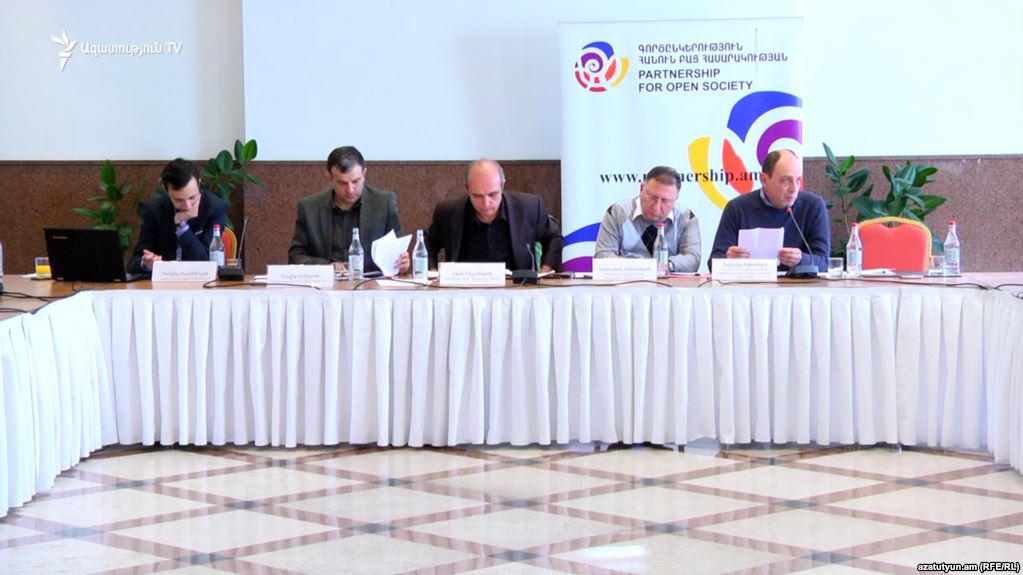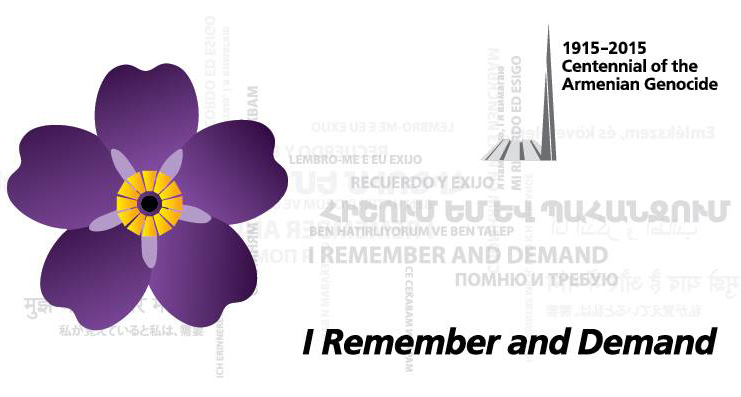YEREVAN — Prime Minister Nikol Pashinyan met with the participants of the “iGorts” program for the involvement of Diaspora specialists in public administration bodies of Armenia.
Welcoming them, the Prime Minister noted. “I am glad that we continuously implement this program, despite all the difficulties and complications. I am also glad that we can state that the program has recorded concrete results in terms of achieving the goals we have set. And here we are talking about the involvement of the Diaspora potential in the public administration system of Armenia.
As you may already know, we have high-ranking officials from the program participants, in the person of the Deputy Minister of Economy and the Chairman of the Tourism Committee, which shows the seriousness of our intentions. Of course, first of all, the seriousness of the the program participants in their intentions was expressed, to which we responded accordingly.
I hope that we will continue this process, because we want the involvement of the potential of the Diaspora in the public administration system of Armenia and in solving the problems facing our country to be more and more tangible. We also want our esteemed representatives of the Diaspora to see the problems from the inside, to participate in their evaluation, and to offer concrete solutions, which may be left unnoticed by the ordinary everyday view.
Of course, I think we will continue this process. I also see from your eyes that you are really serious in your intentions, and I am sincerely happy for that, because you know that we are facing unprecedented challenges, and addressing and solving those unusual challenges requires unusual approaches. We hope that you will bring with you those unusual approaches, and that you will help us, that you will enrich us with your knowledge, skills, abilities, and if you will be able to take something useful from what has already been done, of course we will be happy.”
The Prime Minister emphasized the importance of cooperation with the Diaspora in this format – through the programs of the Office of the High Commissioner for Diaspora Affairs.
“Maybe I am not well informed, I do not rule out, but I do not remember the leadership of Armenia to have ever cooperated with the Diaspora in this format before. I think it is an important result of that institutional change: the High Commissioner for Diaspora Affairs is himself a representative of the Diaspora, although like many, he was a representative of Armenia before being a representative of the Diaspora. This topic is peculiar just for that reason. And we want those borders not to exist. In today ‘s global world, sometimes it does not meven matter where you are in the world. In the modern world, distance is more psychology than space. And, consequently, I do not want to underestimate space at all, but I do not want to underestimate psychology either. We must overcome psychology through space and space through psychology. I think this program is one of the most important platforms for the implementation of this vision.
Of course, I talked about specific cases, but I am convinced that the participants of the “iGorts” program have done a lot of work in different ministries, participated in the development and implementation of various laws, government decisions, programs. I apologise for that I can’t list them all right now, but I know that really a lot of work has been done. And I hope that the participants and the initiators of this program, we all will be satisfied with the end result. Even if we do not have the opportunity to talk about very tangible results as much as we would like, this communication, this contact itself is very important and useful. I welcome you again, thank you for your readiness shown during this difficult period and express my readiness to answer, to address all your questions and, of course, to continue the cooperation.”
According to Zareh Sinanyan, High Commissioner for Diaspora Affairs, the program, which was launched in 2020, can be considered successful. In the first year, in 2020, iGorts received 800 applications from 27 countries· As a result, 52 Diaspora Armenian specialists from 19 countries worked in 19 different departments. By the end of the program about 70% of the first stage alumni decided to stay in the Motherland. By the completion of the program, 16 of them remained in the state system, 9 of which are financed through the Hovnanian Foundation. In 2021, 350 applications were received from 30 countries· As a result, cooperation agreements were signed with 50 Diaspora Armenian specialists. At present, 47 specialists from 14 countries work in 25 different departments: the National Assembly, ministries, committees, inspection bodies, etc. Diaspora Armenian specialists have arrived from different countries of the world: Russia, USA, Lebanon, Belgium, Germany, Syria, France, Cyprus, Switzerland, etc.
During the meeting, the participants of “iGorts” thanked the Government of the Republic of Armenia for such an opportunity and presented their work carried out in various state agencies.
Prime Minister Pashinyan also answered a number of questions of the meeting participants, which referred to the reforms of the public administration system of Armenia, Armenia’s international cooperation, economic stimulation, realization of the Diaspora’s potential, problems of education, science and other spheres and the government’s steps to solve them.
“iGorts” aims to involve Diaspora Armenian specialists with higher education, 3 years of professional experience in the field of public policy with a master’s degree or a bachelor’s degree with a minimum of 5 years of professional experience in the public administration of Armenia, whose professional and expertise skills will contribute to the implementation of innovative ideas and conducting large-scale research. One of the goals of the program is to apply the work experience and skills of the participants in the work and programs carried out by the public administration bodies of the Republic of Armenia and Artsakh, which will give an opportunity to promote professional repatriation, to support the processes of improving the public administration system.

